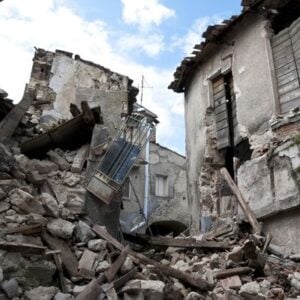In the small rural community of Mhandamabwe, Masvingo Province, Zimbabwe, healthcare used to arrive under the dim glow of candlelight. “We used to request mothers to bring candles and torches as part of delivery services. Installation of solar power has tremendously changed our services,” said Petunia Tshuma, acting Nurse-in-charge at Mhandamabwe Clinic, reflecting on the dramatic shift solar energy has brought to maternal and community health. Patients like Emelda Madlangove remember the fear and uncertainty of past deliveries, recalling nights of anxious childbirth in poorly lit clinics. Today, a simple flick of a switch transforms lives: reliable electricity allows doctors to operate safely at night, keeps vaccines and medicines cold, powers laboratory systems, and enables digital record-keeping and supply chain management, ensuring better healthcare for all.
Globally, nearly a billion people in low- and lower-middle-income countries depend on health facilities with unreliable or no electricity. Clinics without power often rely on diesel generators, which add both cost and pollution to already overstretched health budgets. “If there is no electricity for two days, our refrigerators are affected, and so is our cold chain,” noted Judith Chamboko, Nurse in Charge at Nemwana Clinic, highlighting the tangible risks of energy insecurity in healthcare.
To address these challenges, the United Nations Development Programme (UNDP), with financing from the Global Fund to Fight AIDS, Tuberculosis and Malaria, partners with governments and local communities to equip health facilities with solar power. This approach not only provides uninterrupted energy but also reduces carbon emissions, enabling smarter, greener health systems. In Zimbabwe, over 1,072 health facilities have already been solar-powered, lowering operational costs and preventing the release of 17,699 tonnes of CO2 in 2024 alone. By the end of 2025, another 188 facilities will be upgraded, extending clean energy to 70 percent of the nation’s health infrastructure. “Getting energy from solar helps us reduce emissions and get a more affordable energy source,” explained Ruramai Makamure, Electrical Engineer at UNDP Zimbabwe.
Solar-powered health facilities in Zimbabwe include distribution warehouses and national laboratories, crucial for storing medicines and conducting testing. Renovations and training have increased laboratory testing volume by 300 percent since 2014, strengthening the country’s ability to combat HIV, tuberculosis, malaria, and other disease outbreaks. At the National Pharmaceutical Warehouse, solar energy powers logistics systems that keep health facilities stocked with essential medicines, ensuring they reach even the most remote communities safely.
The success in Zimbabwe is now being mirrored in Zambia, where 423 rural health facilities and three national medical warehouses—serving over five million people—will be equipped with solar energy and satellite internet by the end of 2025. These upgrades enable real-time data streaming to national health authorities, ensuring continuous monitoring of facility operations and uninterrupted healthcare delivery. At pilot sites, smart sensors will track energy use, equipment performance, and environmental conditions, helping administrators prevent issues before they occur. Additional systems, including clean water and advanced healthcare waste management, further improve public health conditions. To support long-term sustainability, Zambia is developing a national framework that trains local technicians, engages communities in maintenance, and explores innovative financing mechanisms such as carbon credits and donor-backed guarantees.
Solar energy also builds climate resilience. In 2024, Zimbabwe and Zambia experienced their worst drought in decades due to El Niño and the climate crisis, drastically reducing hydropower production and causing daily power cuts of up to 17 hours in Zimbabwe and 21 hours in Zambia. Decentralized solar power has ensured that health services continue to function during such crises, acting as a lifeline for patients and communities.
Beyond resilience, clean energy in health systems helps countries meet global climate commitments. The health sector accounts for 5 percent of greenhouse gas emissions worldwide, and UNDP’s Smart Health Systems initiative supports countries like Zambia and Zimbabwe in fulfilling the COP28 Declaration on Climate and Health, advancing the Sustainable Development Goals, and ensuring no one is left behind. “We want everyone, no matter where they live, to have access to reliable, quality healthcare,” said Dr. James Wakiaga, UNDP Resident Representative in Zambia. Solar energy is proving to be the bridge to achieving that vision.
UNDP’s Smart Health Systems initiative leverages partnerships with the Global Fund and other stakeholders to deliver modular, scalable solutions that expand climate-resilient health infrastructure, foster digital transformation, adopt artificial intelligence tools, strengthen health workforce capacity, and promote innovative financing. From 2025 onwards, the program is fast-tracking implementation in ten countries and aims to mobilize at least US$100 million to expand to 20 new countries by 2030, demonstrating a commitment to combining health, energy, and climate solutions to create lasting, equitable impact.
By illuminating clinics, warehouses, and laboratories with solar power, UNDP and its partners are literally and figuratively lighting up lives—ensuring that access to reliable energy becomes a cornerstone of safe, efficient, and climate-resilient healthcare for millions across Africa.







